Get a “Play Buzz” Going with Block Play!
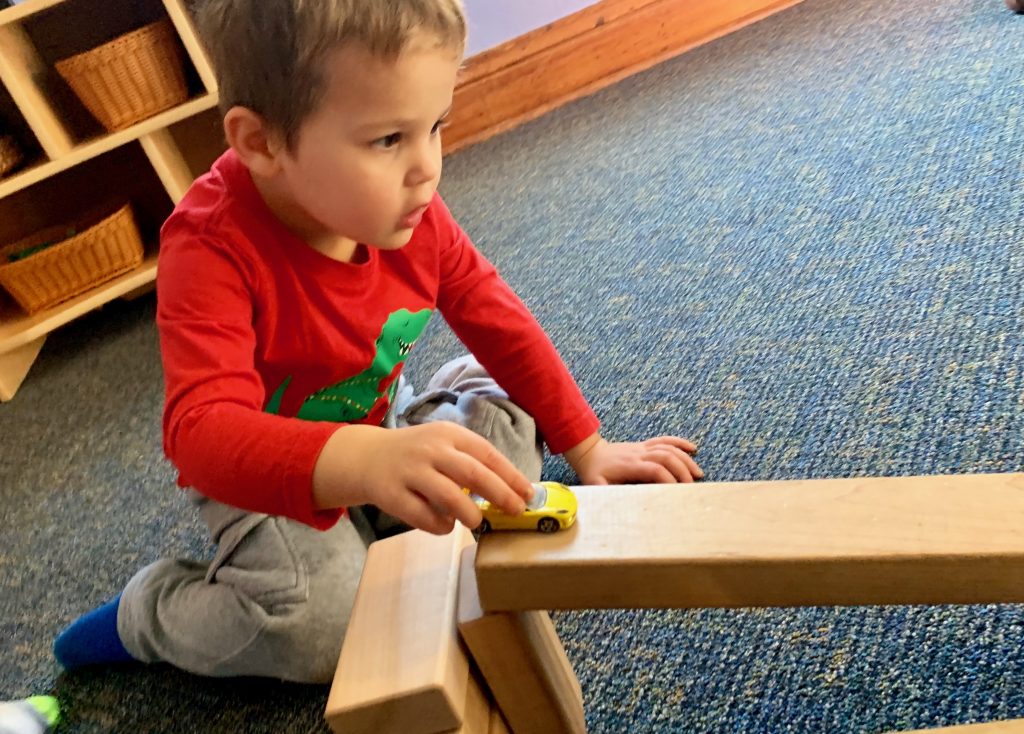
One extremely cold morning, PLUS one extremely curious three-year-old EQUALED an unexpected explosion of mathematical concepts being explored in our classroom. Jamison started the movement with a small ramp and a single car. The fever caught on and soon we had ramps and obstacles being set up all over the room by Jamison and his fellow early math explorers. We had ourselves a PLAY BUZZ going on!
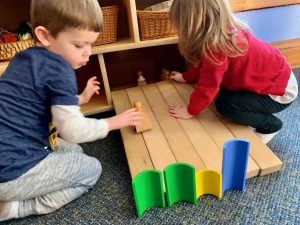
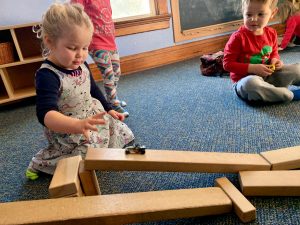
What exactly is a play buzz? It was first explained to me as “a moment during free play when all is good, all is right, all needs are being met and all children are learning.” I would love to give credit to the genius teacher who coined the phrase “play buzz.” It’s a teacher’s dream and, when it happens, you recognize it immediately. These are the moments of movement and learning and exploring and brain-building experiments. These are the moments when you grab your camera and your clipboard and you begin checking off all of the learning standards that those pesky assessments demand.
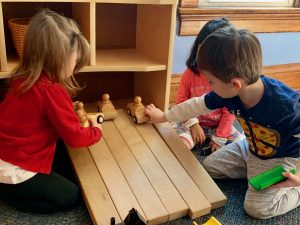
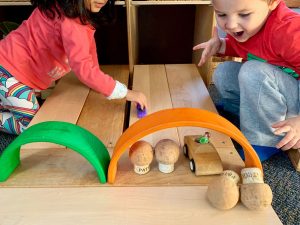
On this given day, we were exploring the concepts of spatial relationships and geometry. We made predictions, gathered data, studied cause and effect and organized our information to try something new. We were knocking out those Illinois Early Learning Standards by the minute. Math vocabulary was being tossed about in typical preschool language, including the words “up, down, fast, faster, speed, tall, short, in front of, behind, balance, circle, line, flat and corner.” Children need to learn the language of math to think through and solve their math challenges—and then communicate their thought processes to others. When children play and experiment with ramps and cars with their friends, they learn how to problem solve and communicate their thoughts. Problem-solving play helps children develop foundational skills that will be used in math learning in the years to come. When we introduce children to the vocabulary of math, we are building a foundation for future math success. This early math website has a fabulous vocabulary glossary if you’d like to fire up your brain to “hear” the math that is happening in your own classroom during free play.
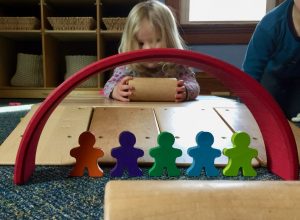
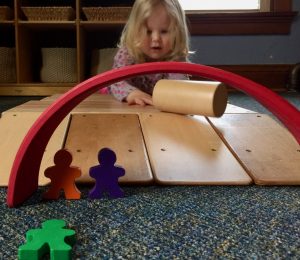
When these play buzzes happen, the energy in the room will feel calm and focused. This is the perfect time to observe the learning that is underway and document it through photos and/or notes. This is the good, deep learning that connects the synapses in the brain. This is the hands-on learning that builds a strong early math foundation. This is when you start matching up learning standards on assessments with ease and joy! What turns your students on? Observe your students to determine the types of activities that spark a play buzz and then let the learning standards take care of themselves!
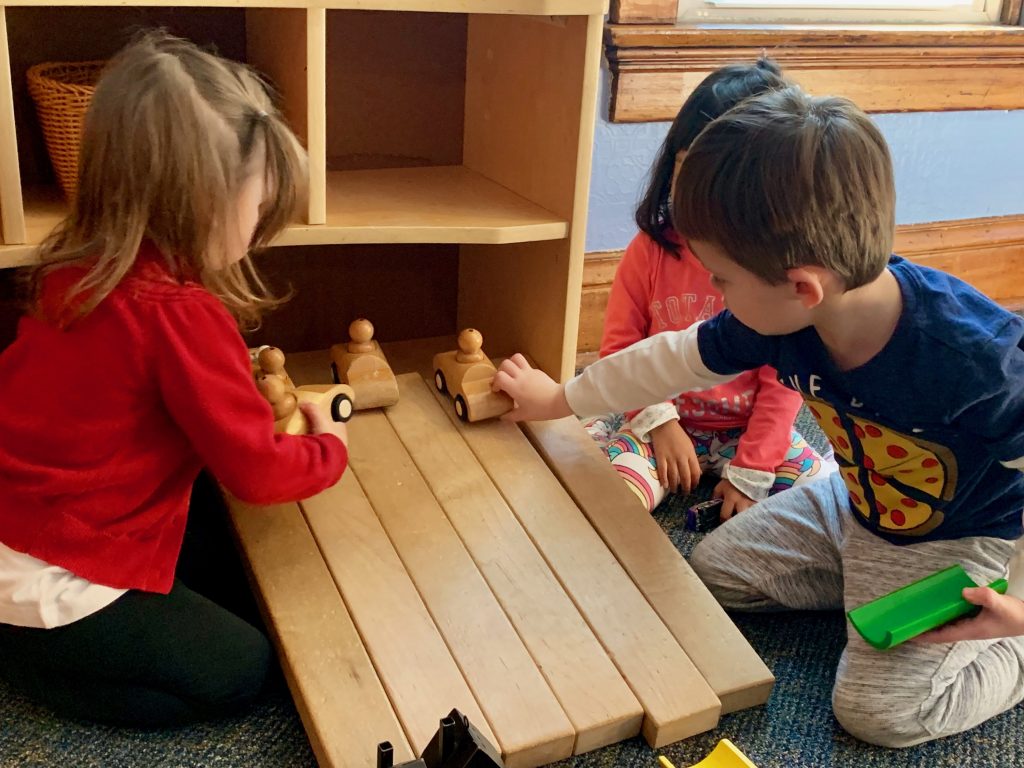
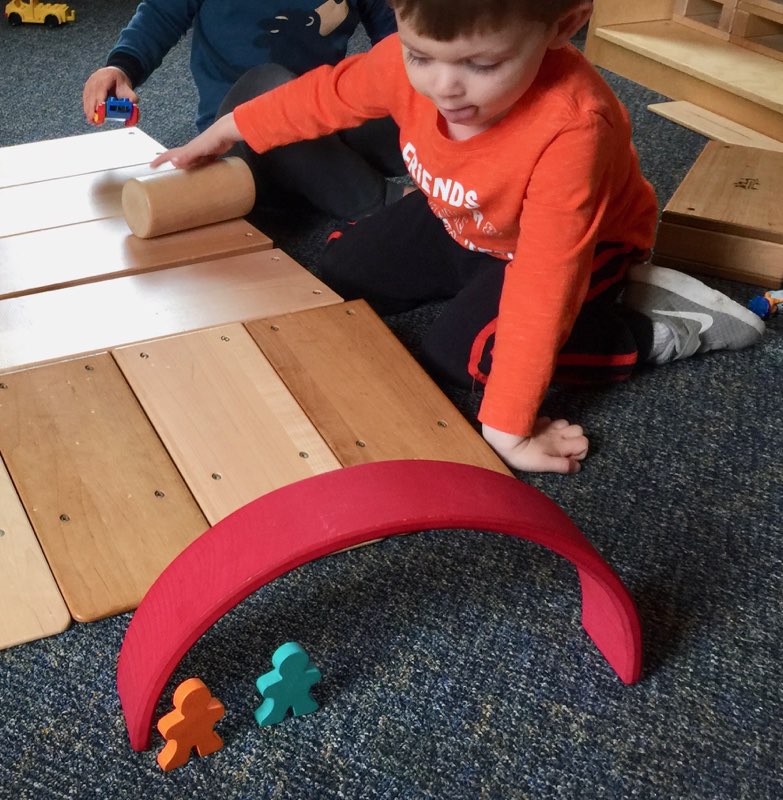
where did u get blocks that long
Hi Shelby, Those long blocks are our quad blocks from our unit block set. Our set is from Community Playthings, and you can order those specific blocks on their website. They are the first blocks to be pulled out, daily!
Very interesting ?
Love the phrase “play Buzz”….and also the little wooden people shapes for block and building play
I would love to give credit to the term Play Buzz! It truly sums up the moment! Thanks, Mary!
Learning how geometry works in the classroom .the classroom children know the difference between the the shape n colors it is a everyday learning experience in the classroom.
Number and senses were taught materials didn’t really help them learn concept numbers and counting.
I like when the teacher was teaching the kid numbers and trying to see if he can count at the same time she use comparison as well and the kid got it right.
I liked it in video with the baby was eating and he wanted more mom was talking to him that is a way of learning as well.
I liked how the children used the cylinder to roll on the rectangular ramps to knock down block people.
I like the phrase “play buzz”. I love the blocks and the blok people. Awesome.
I’m a big fan of ramps and using all the other props just like you did. I enjoy hearing math language as well and seeing what the children build and how they work together or separately. There is so much math going on I love it.
I love that phrase, play buzz. I love it when that happens. It’s important for teachers to emphasize the vocabulary and elicit children’s thinking as they engage in these activities
great adult interaction and guidance without interference of children’s creativity
Play buzz, perfect phrase. Enjoy the usage of blocks and a way with out interrupting play.